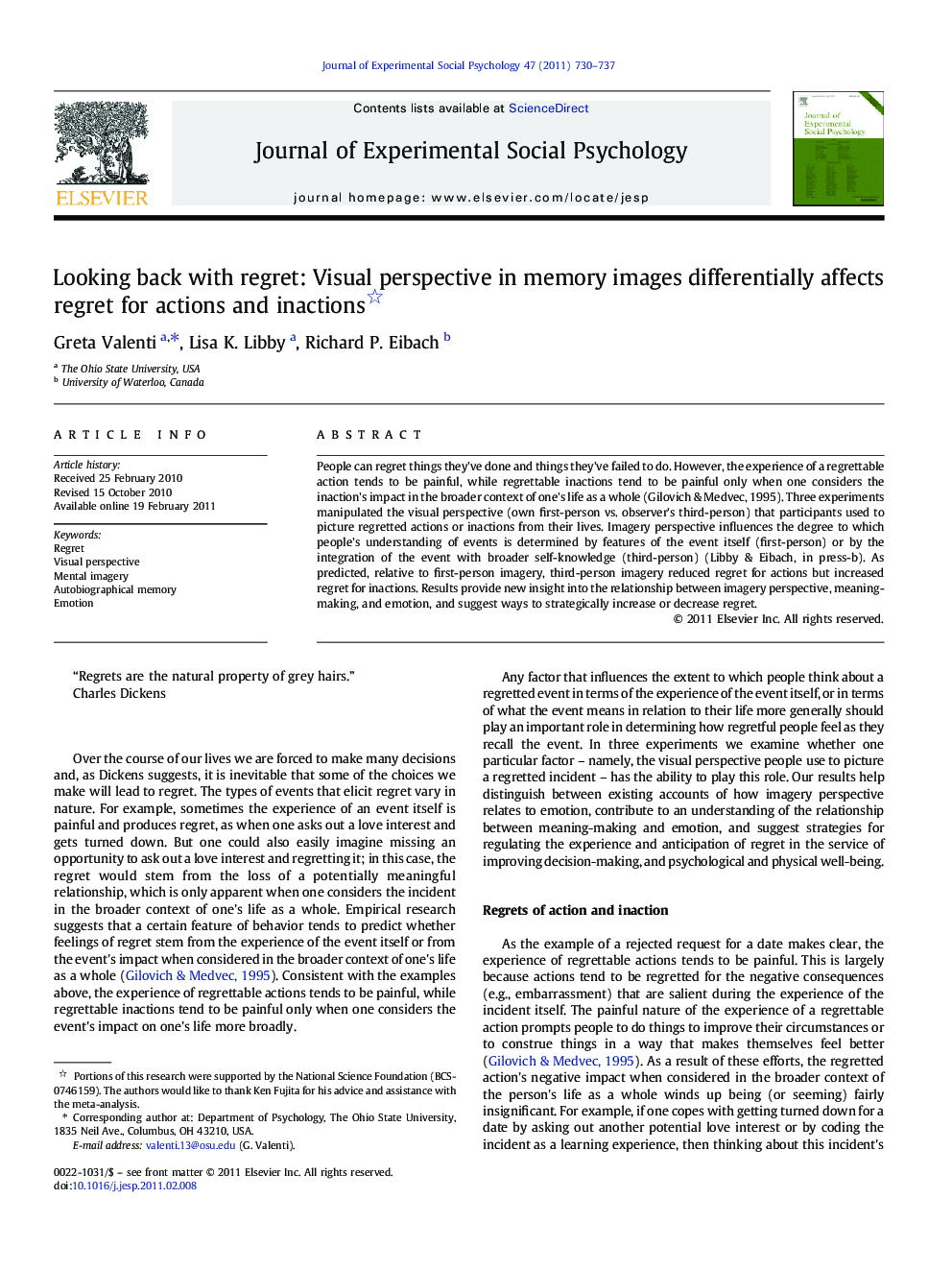| Article ID | Journal | Published Year | Pages | File Type |
|---|---|---|---|---|
| 948178 | Journal of Experimental Social Psychology | 2011 | 8 Pages |
People can regret things they've done and things they've failed to do. However, the experience of a regrettable action tends to be painful, while regrettable inactions tend to be painful only when one considers the inaction's impact in the broader context of one's life as a whole (Gilovich & Medvec, 1995). Three experiments manipulated the visual perspective (own first-person vs. observer's third-person) that participants used to picture regretted actions or inactions from their lives. Imagery perspective influences the degree to which people's understanding of events is determined by features of the event itself (first-person) or by the integration of the event with broader self-knowledge (third-person) (Libby & Eibach, in press-b). As predicted, relative to first-person imagery, third-person imagery reduced regret for actions but increased regret for inactions. Results provide new insight into the relationship between imagery perspective, meaning-making, and emotion, and suggest ways to strategically increase or decrease regret.
